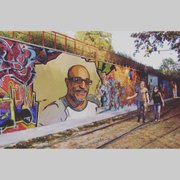Pistachio Cafe
Mediterranean sweets, pastries, coffee & brunch with unique decor
Mediterranean sweets, pastries, coffee & brunch with unique decor
Ryan M.
Presto
Amanda A.
Oopy G.
Toby G.
Norhan K.
Zhenadia W.
Manjusha - MJ K.
Andrew G.

Christa K.

Corinne G.

Bruce K.

Alessandra R.

Christina J.

tania p.

Melissa R.

Brian D.

Ivana F.
Charlotte S.

Jose P.

NicoleA. W.

Enxhi B.

Catherine L.

Alex N.

Tanvi G.

Katie F.
Marisa T.

Jessica J.

Carlene S.

Emilie E.

L M.

Ana B.

Jacqueline D.

Cassie S.

Nuvdeep D.

Vanessa G.

Cece L.

Asha L.

Mirian G.

Trixie G.
Mandee G.

Scruffy B.

Mitchell B.

Jack L.

Michelle S.

Ike C.

Mike S.

Anju P.
Joanne S.
liz l.

Abiba S.

Andres A.

Jen H.

Madison M.

Alexis F.

Rose R.

Rida S.